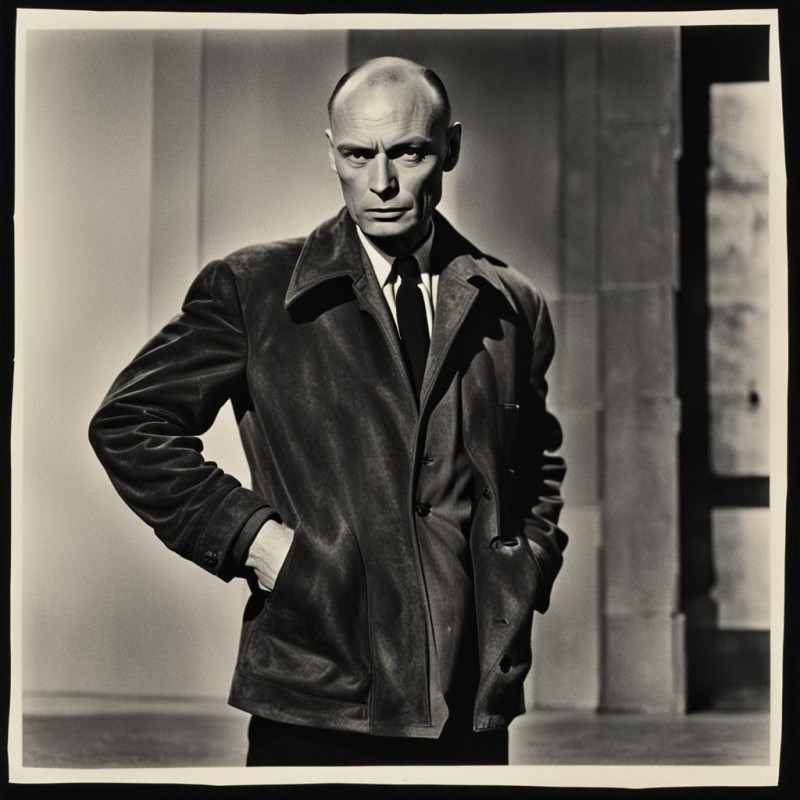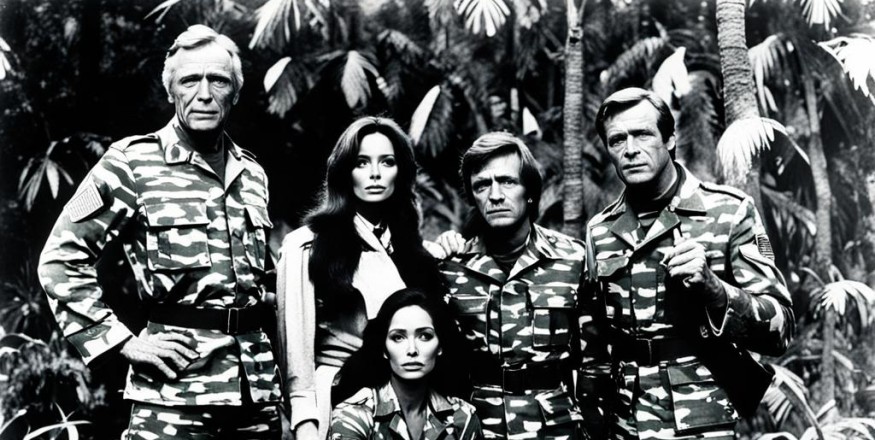 x
x
"My dear, where are you taking me?" Dragov's voice boomed with authority, his Russian accent lending a distinctive edge to his English.
"To my apartment," Kathy answered. "I'm the person you'll be working with, the others just want to look you over." Kathy shot him a glance out of the corner of her eye, trying to gauge his reaction to working for a woman, but the mercenary had long ago learned to hide his feelings and she could gain nothing from his expression.
"How did you get my name?" Dragov's voice dripped with Russian machismo as they drove on. He kept his gaze fixed on the road ahead, refusing to look at her, his tone sharp and commanding.
"Well, Viktor," Kathy began, her voice steady as she recounted, "the editor of Soldier of Fortune magazine recommended you. From what I've gathered, you're no ordinary man. A KGB-trained assassin who defected to America, Kim Philby-style. You've operated in countries like Vietnam, Cambodia, and Angola, among others."
Kathy parked her car outside an attractive building overlooking the Los Angeles River. They climbed the creaking stairway to her apartment on the third floor. Kathy opened the door.
"Gentlemen," she announced to the men assembled in the room, "this is Viktor Dragov, free-lance mercenary, whatever that means."
"I guess it means he works for the highest bidder," Borges commented. He had all the intellectual's hatred for a man whose trade was violence. His hatred for the mercenary was coming through steadily in his voice.
"Steady, Borges," Larry cautioned nervously. "Come in, Mr. Dragov, take a seat here, will you."
The mercenary was shown to a small hard-backed chair which was placed directly beneath a standard lamp. As his eyes grew accustomed to the glare of the light, Dragov made out the faces of six men gathered in a semi-circle around him, in a room that was small and cozy, overfilled with Kathy's books and possessions. He guessed that most of the men were journalists, they had a protected, intelligent, worldly look about them. They didn't tell him their names.
"Do you know anything about a woman named Mischa Barton?" the group's ginger-haired spokesman inquired, his tone cautious yet insistent as he turned his attention to Dragov.
"I am not familiar with Mischa Barton," Dragov responded with a hint of confusion in his voice. "Who is she, and why am I needed for someone like her?"
"The situation with Mischa Barton is dire," the spokesman explained solemnly. "She has been unjustly committed to a mental institution called Pescadero. As an actress, her career has been overshadowed by this unjust incarceration. Now, let me tell you a little bit about our group. This committee or pressure group, call it what you like, was formed to fight for the human rights guaranteed to all people by the Constitution of the United States and the United Nations General Assembly. Over the last two years we have been less and less successful, we recognize the need now to make a major impact on world attention and Mischa Barton has become of particular interest to us; not only because of the injustice surrounding her commitment, and the publicity she could bring our cause. You see, the ramifications of Mischa Barton's commitment extend far beyond her plight. It's not only a matter of Anglo-American solidarity but also the fact that her father, Lord Paul Marsden Barton, wields considerable influence in both political and business spheres in Great Britain. If we are successful in rescuing Ms. Barton, it would automatically focus world attention just where we want it. And that's where you come in, Mr. Dragov. Your assignment is to get Ms. Barton out of Pescadero for us."
Dragov fell into a contemplative silence, his mind consumed by thoughts of the dynamics of American prisons and mental institutions. Recalling the grim conditions reported in both, he couldn't help but ponder the harsh realities faced by those confined within their walls.
"These U.S. mental hospitals are closely guarded," Dragov remarked with a somber tone, his voice tinged with seriousness. "My understanding is that they have thicker security than the political prisons of my homeland. Have you discovered some way I can get Ms. Barton out?"
"We don't have a specific plan in place," the spokesman admitted candidly, his tone earnest yet resolute. "However, no detention facility is ever 100% escape-proof. We believe that with enough help from the outside, there must be a way. We don't have any experience with which to find it, that's your job."
Dragov was amazed at the naivety of these assembled men, and he hid his scorn for those who felt able to flaunt their theories on human rights and liberty from the comfort and safety of a wealthy publishing house. What did they know of the world? Dragov looked into their smug faces. He liked them no more than they liked him; he knew at best it would be an unsteady partnership and he suspected that few of the group harbored any real belief that he would be successful. An unsuccessful attempt would serve just as well to publicize their movement and Dragov, of course, was expendable. But, for very pressing reasons, he badly needed this work.
"I'll go and look," Dragov told them, "but I do not promise you anything, and if I come up with a way of getting this woman out you'll have to pay me my contract price, and that price, gentlemen, will be---how do you say?---sky high." The mercenary stood up, signifying that his interview was over.
"Kathy Lakas will brief you," the spokesman said. "She's fortunate enough to have a research grant that allows her to travel. She'll be going with you to Harborview, where the institution is located. I want to make it clear that she'll be representing this committee; you will make your reports to her.
Kathy Lakas followed the mercenary down the stairs and into the street. She thought she knew what was going on in his mind and she warned him: "Don't underestimate those guys. They're among some of the best men the media has to offer, and the committee we've formed has more authority than you think." They climbed into her car and she handed him a big bulky envelope.
"This contains all the information that we've been able to compile on Ms. Barton's situation."
The mercenary switched on the interior light and as the car pulled away from the curb, he tore open the envelope. Inside were photographs, several sketch plans of the hospital, and a sheaf of typewritten notes. "Where does this information come from?" the mercenary asked suspiciously.
"My brother researched the press-cuttings agencies in New York, L.A., London and Paris."
"Was he able to find out how your friend is being guarded?"
"No. But I've got a contact who is a sergeant in the Harborview Police Department and I may be able to get his help on that. I've put your bus fare in there," Kathy nodded to the envelope, "and money for expenses. It's not that generous, but then we haven't got the kind of money I supposed guys like you like to splash about. And another thing....."
"If you have any worries about my ability to handle myself," Dragov assured Kathy, his voice carrying an air of confidence, "rest assured that my KGB training was thorough. I am an assassin, after all. No one in the institution's employ, no matter how big or strong, would survive an encounter with me."
"No!" Kathy admonished, her voice leaving no room for misunderstanding. "You are not to kill anyone. Your job is simply to find a weak spot and assess if it can be exploited. Nothing else. My job is to ensure that you do not harm anyone, and I expect you to understand that."
She had meant to define clearly the terms of their relationship, but the mercenary still unnerved her and without meaning to, she knew she was sounding arrogant again. Taking that kind of voice tone with a man like Dragov was tantamount to challenging a lion with a cardboard sword.
Dragov did not comment. If he had taken offense at her jibe, he didn't show it. He was not what Kathy had imagined a mercenary to be like, there was none of the bravado, the macho flamboyance she'd been prepared to resent. He dressed well and conservatively; his clothes did not hide the grace of his powerful, lithe body. Nevertheless, he carried the stamp of a born leader's authority, a dangerous aura, and she knew she would have to handle him carefully.
Kathy drew her car up outside the Holiday Inn.
"O.K. I've booked you in here tonight. I'll see you tomorrow if any last things need clearing up and maybe drive you to the bus terminal."
"Don't go to the trouble," the mercenary answered. "I have a few things left to do. I'll make my way to this---Harborview alone. Leave me a number where I can contact you." He got out of the car and walked a few paces, then he turned and came back to Kathy's window.
"Miss Lakas," he spoke quietly, making it clear that he didn't want what he knew to be a headstrong, politically motivated woman getting in his way. "I accept that your committee is paying me and I will work for you to the best of my ability, but it is best that I work alone because I warn you, the world that you and your friends live in can have no understanding of the risks that are taken in mine. If you inside on working with me in Harborview, then you will learn, because you will have to enter my world."
Dragov's slanted eyes seemed to challenge hers through the open car window, but Kathy had been prepared for this move.
"I'll be in Harborview in twenty-four hours," she said determinedly. "Make sure you call me up."























